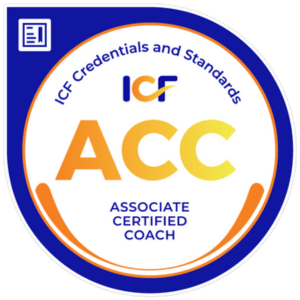|
This week I would like to share with you, 5 different types of questions. We all know that the questions you ask, are not always for you to get the correct answer. Sometimes they are for your team, students, or even relatives to be able to gain insight if needed.
Being questioned is something that can challenge and clarify your own thinking in a way that moves you forward. If you are asked a powerful question in formulating your response you will often be thinking of the issue in a completely different way. think of how many times you've heard yourself answering a question and thinking I never thought of that before It was the Romanian French playwright Eugene Lonesco who once wrote; “It is not the answer that enlightens, but the question”. As a coach, my job is to ask questions that will elicit insight, and new thinking, and challenge limiting beliefs about oneself. So here are my top five types of question 1.Open question An open question is one where there is no right answer. It will not be a yes or no answer as the answer should be far longer than the question. An open question should interest and stimulate the person, getting them to think deeper than they do usually. Example Instead of “Do you think we need to change a few things to make this relationship more productive?” Try: “What do we need to change to make this relationship more productive/positive?” 2. Challenging questioning Questions that challenge the learner will lead them to make progress and uncover layers of their issues or situations that are below the surface. In answering challenging questions, a person would develop a greater awareness of the issue and build a different perspective. Example If I wasn’t here, what would you do? Or, if you were me and someone came to you with the same problem, what would you say to them? 3. Visionary questioning Visionary questions are literally questions that prompt the learner to see what they are talking about perhaps, once again, with new eyes. If you are asked a visionary question, yeah huh you will be asked to use your imagination and picture what you are thinking about. Example “So where do you see yourself in five years?” or “Imagine in three months from now all obstacles are removed and you have achieved this task, how did you get there?” 4. Exploratory questioning Exploratory questions are going to encourage people to be more reflective in exploring the topic. In this instance, they may be given something to go away and think about, especially if you are dealing with Performance Management or identifying strengths or areas for development. Example “What motivates you?” or “What does it mean to be successful in your job” 5. Powerful questioning Powerful questions can really get to the hub of a problem and our best used when the person seems to be at a dead end, or if it seems like the real issue is being disguised. They are short and cannot be avoided. They will demand an honest and truthful answer and will go beneath the surface and probe what the person knows already and uncover endless possibilities. Example “What do you want to happen?” Or “What are you not saying/”, or even, “What is the real challenge here?” Picking the right type of question for the situation does take practice, but we can all improve our conversations with good questioning. I like the idea that as a leader, it is not your role to take on board the tasks your team struggle with, but to help them to overcome their challenges themselves. So, my tip of the week for you to consider practicing this week is; “Ask the right questions to help your people learn” Tags:
0 Comments
Leave a Reply. |
AuthorRichie Forde Archives
February 2024
Categories |
Phone: +1 (246)-842-6876
Email: [email protected]
Business Reg no. 70161
© 2024 Edge Barbados
Engage-Develop-Grow-Evolve
Facebook - Instagram - linkedIn
Email: [email protected]
Business Reg no. 70161
© 2024 Edge Barbados
Engage-Develop-Grow-Evolve
Facebook - Instagram - linkedIn




